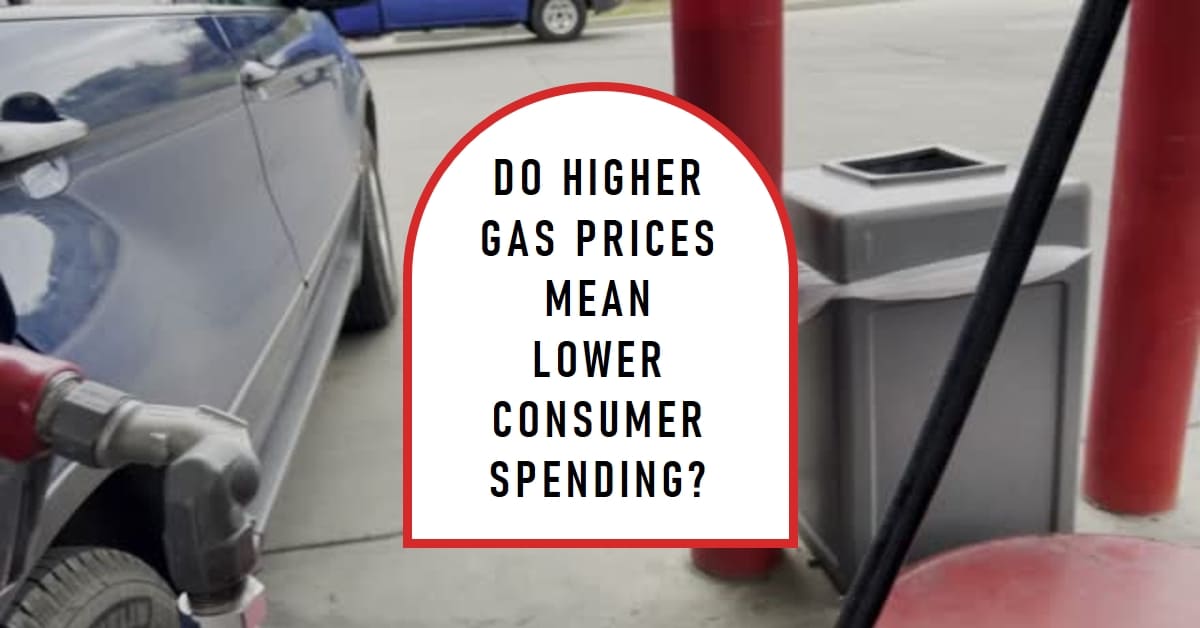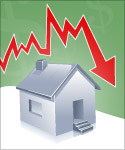The short answer is “extremely unlikely”. The reason is that a small increase in some costs (like gas) only creates a marginal shift towards other costs (not a decrease in those costs). One of the most important commodities in a first world economy such as ours is gas and other energy sources. If there is a rapid rise in energy costs, it could lead to a significant increase in overall prices – this is known as inflation.
The question now becomes: Is the rise in gasoline prices strong enough to create an inflationary trend that will stall growth in consumer spending? The fluctuation of gas prices is a phenomenon that can have a significant impact on the economy and consumer behavior.
Do Higher Gas Prices Mean Lower Consumer Spending?
When gas prices rise, it often leads to a domino effect that touches various aspects of economic activity. One of the most immediate effects is on consumer spending.
Higher gas prices mean that consumers have to allocate more of their budget to fueling their vehicles, leaving less disposable income for other purchases. This can lead to a reduction in discretionary spending, which is the portion of income that goes towards non-essential items and services. As a result, retailers may see a decrease in sales, especially in sectors that are not considered necessities.
Moreover, the increase in gas prices can also affect consumer behavior in terms of mobility. With higher costs at the pump, individuals may opt to drive less and, consequently, visit physical stores less frequently. This change in consumer habits can negatively impact brick-and-mortar businesses, although it may benefit online retailers as consumers switch to online shopping to save on transportation costs.
The ripple effects of higher gas prices extend beyond just the consumer's wallet. Businesses that rely heavily on transportation and logistics may face increased operational costs, which can lead to higher prices for goods and services across the board. This can further strain consumer budgets and force a cutback in spending in other areas.
In the broader economic landscape, persistent high gas prices can contribute to inflationary pressures, as the cost of goods and services rises. This can lead to a decrease in the real purchasing power of consumers, effectively reducing their ability to spend.
However, it's important to note that the impact of gas prices on consumer spending is complex and can vary based on a range of factors, including the overall economic climate, consumer confidence, and the availability of alternative transportation options. Additionally, the long-term effects may differ, as high gas prices could incentivize consumers and businesses to seek more fuel-efficient solutions and alternative energy sources, potentially leading to innovation and changes in consumption patterns.
Strategies for Consumers to Cope with High Gas Prices
In times of high gas prices, consumers often look for ways to mitigate the impact on their budgets. Here are some strategies that can help:
- Vehicle Maintenance: Keeping your car in good shape can improve fuel efficiency. This includes regular checks on tire pressure, oil changes, and air filters.
- Fuel Rewards Programs: Many gas stations offer rewards programs that can save you money at the pump. Signing up for these can lead to significant savings over time.
- Use of Apps: There are several apps available that help you find the cheapest gas prices in your area. Utilizing these can help you save a few cents per gallon, which adds up.
- Alternative Transportation: Whenever possible, consider walking, biking, or using public transportation. Not only does this save on gas, but it's also better for the environment and your health.
- Carpooling: Sharing rides with others can cut down on individual fuel costs and reduce the number of cars on the road, which also helps with traffic congestion.
- Driving Habits: Adopting more fuel-efficient driving habits, such as accelerating gradually and maintaining a steady speed, can reduce fuel consumption.
- Electric Vehicles (EVs): If it's within your means, consider switching to an electric vehicle. EVs can be more economical in the long run and are less affected by gas price fluctuations.
- Planning and Consolidation: Plan your errands to minimize trips. By doing multiple errands in one trip, you can save time and gas.
- Telecommuting: If your job allows it, working from home can save a significant amount of money on commuting costs.
- Budget Adjustment: Review your budget to see where you can cut back on non-essential expenses to accommodate the higher cost of gas.
By implementing these strategies, consumers can alleviate some of the financial pressures caused by high gas prices and adapt to the changing economic landscape.
Bottom Line: While higher gas prices can lead to lower consumer spending in the short term, the long-term effects are less predictable and depend on a multitude of factors. Understanding these dynamics is crucial for policymakers, businesses, and consumers alike as they navigate the challenges and opportunities presented by the ever-changing energy landscape.




